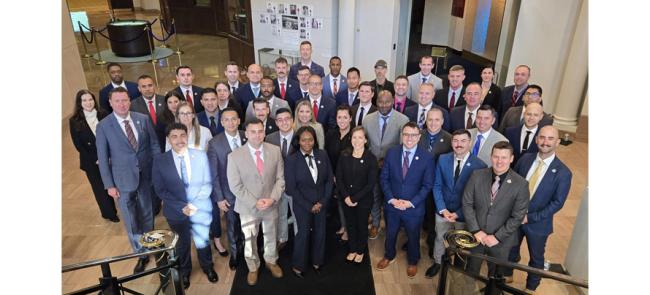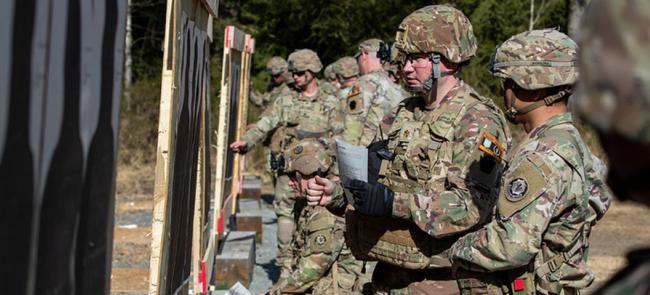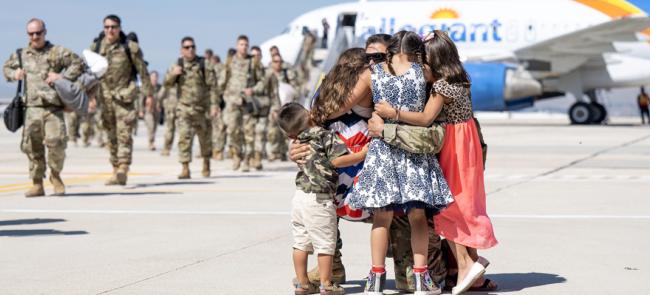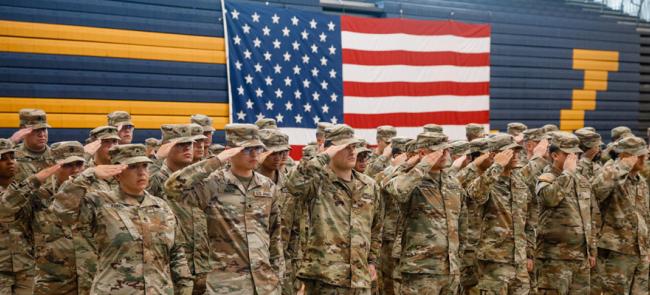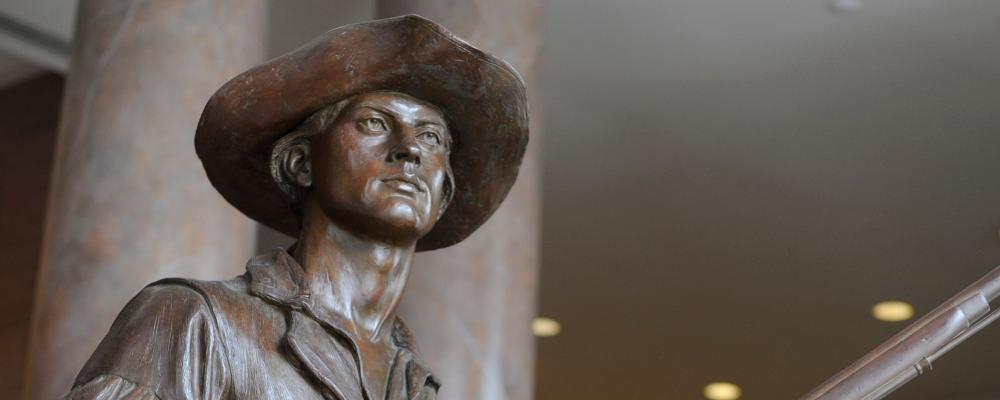
NGAUS hosted the association’s 13 task force chairs in Washington, D.C., Monday for training on how their efforts help inform decisions on Capitol Hill.
The training educated participants — each of whom is a subject matter expert in their military capacity — about the association’s resolutions process, which begins each year in the 54 states, territories and the District of Columbia before culminating at the NGAUS general conference.
The workshop unfolded at the National Guard Memorial, the association’s headquarters in Washington, D.C.
The cycle begins each December, with the 54 Guard associations nationwide creating draft resolutions for the preparation of the federal budget two years later.
Between January and May, the associations formally review and approve the resolutions each one wants to submit.
Each June and July, the NGAUS legislative staff then consolidates the resolutions before soliciting and receiving input from the National Guard Bureau about them.
In July, the NGAUS board of directors reviews these consolidated resolutions and NGB’s input before providing comment.
In early August, each state’s association and adjutant general receives a consolidated resolutions package from NGAUS.
The NGAUS resolutions committee then reviews and crafts a final package of resolutions for the association’s full general conference to consider.
At each full NGAUS general conference, the association's task forces advise the general conference committee on resolutions by providing information and context to the proceedings as subject matter experts.
During October and November, NGAUS then uses the resolutions to prepare a legislative objectives booklet that is distributed to members of Congress and Defense Department officials.
Leveraging their knowledge of the Guard's readiness, modernization and force structure, the association’s task forces also work closely with the NGAUS legislative staff to help prioritize which resolutions will anchor a legislative action plan for NGAUS during the year in question.
According to retired Col. Mike Hadley, the association’s vice president, government affairs, the resolutions cycle is part of the "foundation" of NGAUS.
For instance, Hadley said combining personal experience in the Guard with their role as lawmakers' constituents can make them strong advocates for the force on Capitol Hill.
"Those type of anecdotal stories are way more impactful when they come from constituents than when they come from us," he said of Guardsmen sharing their stories with lawmakers.
"You're our closers in a way," Hadley continued. "We're going to try to reinforce the success that you're having."
NGAUS has 13 task forces, with six focused on Army Guard issues, four on Air Guard concerns and three on joint and personnel matters.
These task forces help NGAUS pursue priorities which could benefit Guardsmen nationwide.
For example, these task forces have provided NGAUS with subject matter expertise about topics like recapitalizing the Air Guard's fighter fleet, which the association considers a legislative priority.
More information about the association's task forces — including a list of every NGAUS task force chair and vice chair — is available here.
— By Mark Hensch







